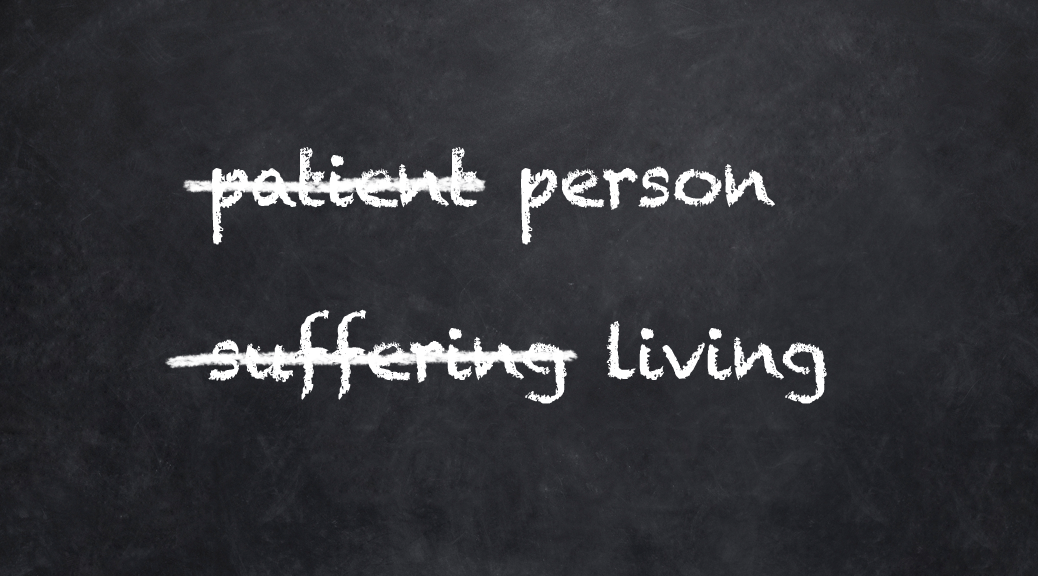
Why language matters
What we say has the power to harm or heal
By Jim Mann

Jim Mann, advocate, volunteer, spokesperson and person living with Alzheimer’s disease
Words matter. Take the word “patient,” for example. My dictionary tells me patients are “people receiving medical treatment”. It is a word used in the context of hospitals and doctor’s offices. When I am in those places receiving treatment, I am a patient. When I am elsewhere, living my life, I am a husband, a friend, a retired communications professional, a 68-year-old man from Surrey, B.C.
I’m also a person living with Alzheimer’s disease. You see now where I’m going with this, right? I can be patient with my own cognitive issues, but I am definitely not a patient. Since my diagnosis in 2007, I’ve become a bit of a stickler for the responsible use of words.
I’ve discovered that when we talk about dementia, too often we medicalize it. We put the condition before the person. Try this out:
“Jim suffers from dementia.”
Maybe you see me as a victim now. Probably you don’t see me at all; probably, you just see my disease.
But here is the thing: I am not “suffering” from dementia. My mother didn’t “suffer” from dementia, either. She lived with it, and now I’m living with it, too.
Now try this:
“Jim lives with dementia.”
How does this make you feel about me? Maybe you can see me now as a person first. Maybe my diagnosis no longer defines me.
So you see, words affect attitude—the way we think about things and deal with them. When we are careless with our language, we can end up isolating and disempowering the very people we are trying to help.
I’m a chatty guy. Heck, sometimes you can’t shut me up. When I travel, I will often strike up a conversation with my seatmate on the plane or the train. But when I tell them I have Alzheimer’s disease, usually that is the end of the conversation. It’s a shame because I’m OK talking about my illness.
Occasionally, my seatmate will challenge me—they’ll say “You can’t have Alzheimer’s disease! We’re talking, after all.” Of course, I have good memory days and bad memory days. But please, don’t judge me based on my illness. Talk to me, get to know me. We might even become friends. That’s a word I’m comfortable with.
Jim Mann is a person living with Alzheimer’s disease. As an active volunteer and spokesperson for the Alzheimer Society, he is a fearless advocate for greater awareness, better care and policy improvement. He previously served as a member of the Board of Directors of the Alzheimer Society of Canada, and now chairs and participates in a number of committees at the national and provincial levels. In these roles, Jim leverages a successful career in business and marketing as well as his experience as a caregiver for his mother, who also lived with dementia.